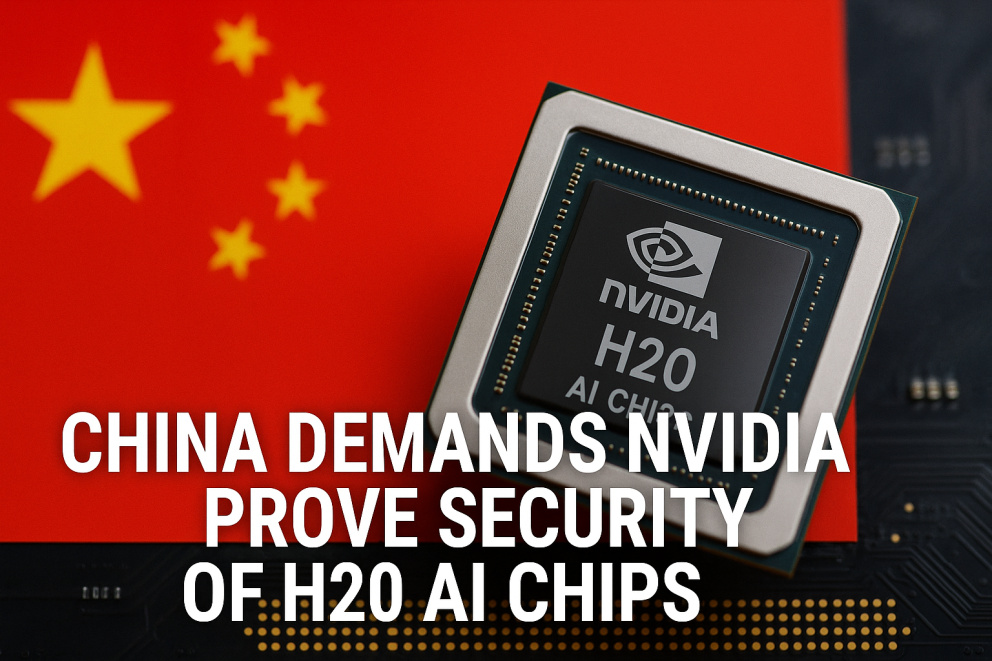China Demands Nvidia Prove Security of H20 AI Chips
Chinese state media has raised concerns over the security of
Nvidia’s newly launched H20 artificial intelligence (AI) chips, urging the
U.S. tech giant to provide assurances that the processors do not pose risks to
China’s data and national security.
The H20 chip, a downgraded version of Nvidia’s
high-performance AI processors, was specifically designed to comply with U.S.
export restrictions imposed on advanced semiconductor sales to China. However,
state-run outlets such as Global Times and China Daily have
questioned whether the chips could still contain vulnerabilities that might
compromise Chinese users.
Growing
Skepticism Over U.S. Tech Imports
In a recent editorial, Global Times stated, "While
Nvidia claims the H20 chip is tailored for the Chinese market, its security and
reliability must be thoroughly verified. Chinese enterprises and regulators
cannot blindly trust foreign technology, especially when geopolitical tensions
influence tech trade."
The article reflects Beijing’s increasing wariness of
U.S.-made hardware and software, particularly after incidents like the alleged
CIA-backed hacking attacks on Chinese infrastructure, which Washington and
Nvidia have denied. Chinese authorities have already imposed stricter cybersecurity
reviews on foreign technology, including mandatory data localization and
source-code inspections.
Nvidia’s
Position in China Under Scrutiny
Nvidia has been a dominant player in China’s AI and data
center markets, but U.S. export controls have forced the company to develop
alternative products like the H20 to maintain its presence. Analysts suggest
that if Chinese firms and regulators remain unconvinced of the chip’s
security, they may accelerate efforts to replace Nvidia with domestic
alternatives such as Huawei’s Ascend series.
"The Chinese government is pushing for
self-sufficiency in critical technologies, and any perceived security risks in
foreign chips will only hasten that shift," said Zhang Wei, a
semiconductor analyst in Shanghai.
What’s
Next?
Nvidia has yet to issue a public response to the state media’s
demands. However, industry experts believe the company may need to engage in
deeper transparency measures, such as allowing third-party audits or
collaborating with Chinese cybersecurity agencies, to retain its market share.
As the U.S.-China tech rivalry intensifies, the scrutiny
over Nvidia’s H20 chips underscores the broader challenges facing
multinational tech firms operating in China—balancing compliance with U.S.
regulations while maintaining trust in a market increasingly inclined toward
homegrown solutions.
Conclusion
The call for Nvidia to prove the security of its H20 chips
highlights China’s cautious approach to foreign technology amid ongoing
geopolitical tensions. Whether Nvidia can address these concerns effectively
will determine its future in one of the world’s largest semiconductor markets.









